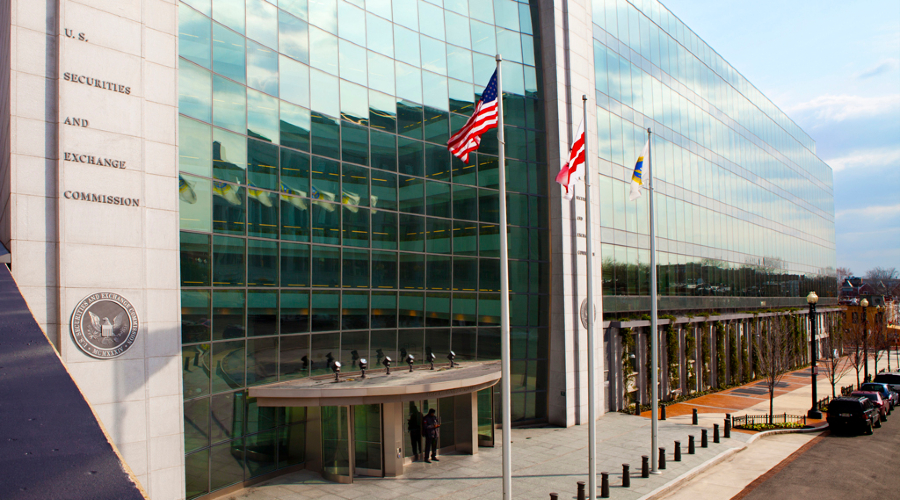When the SEC Asks About Terrorism, It Misses Financial Misreporting
Dividing the SEC's attention risks missing the next Enron.

Published by The Lawfare Institute
in Cooperation With

Editor’s Note: Stopping firms from doing business with states that sponsor terrorism seems like an obvious priority for the U.S. government. However, efforts to use bodies such as the Securities and Exchange Commission can create unexpected problems. Bill Mayew, Robert Hills and Matt Kubic (of Duke, Penn State, and the University of Texas, respectively) argue that the SEC’s focus on terrorism has made it more likely to miss more traditional financial misreporting.
Daniel Byman
***
The mission of the Securities and Exchange Commission (SEC) is “to protect investors, maintain fair, orderly, and efficient markets, and facilitate capital formation.” In the years following the 9/11 attacks, Congress instructed the SEC to review firm disclosures regarding activities in or with nations designated as “state sponsors of terrorism” (SSTs) by the U.S. Department of State. The logic was straightforward: Firms may have activities in SST countries, and unaware “American investors may be unwittingly investing in companies with ties to countries that sponsor terrorism.” The implementation of this congressional mandate has been difficult and has led to questions about the boundaries of financial reporting regulation. Those who oppose this expansion, such as the Securities Industry and Financial Markets Association (SIFMA), claim that “the SEC should leave foreign policy and national security matters to the government agencies charged with, and possessing significant experience in, carrying out those matters.”
In a new study, we investigated whether the SEC’s focus on SSTs limits its ability to effectively review registrants’ compliance with accounting standards. The short answer is yes, and it is costly for American investors.
The SEC first sought to raise awareness of firms’ potential SST activities by launching a terrorism web tool on June 25, 2007. The purpose of the web tool was to allow investors to easily identify financial statement disclosures regarding activities in one of five countries (Cuba, Iran, North Korea, Sudan and Syria) that, at the time, were designated as SSTs.
On July 20, 2007, the SEC announced a “temporary suspension” of the web tool after receiving substantial backlash from firms, the financial press and even members of Congress. The web tool was criticized for being a poorly executed word search that lacked context and information about materiality. For example, the financial services firm Western Union was identified as conducting business in Cuba. However, Western Union was granted a license by the Office of Foreign Assets Control (OFAC) to provide money services in Cuba. In Western Union’s view, the SEC web tool made no distinction between “legitimate business activities licensed by the U.S. Government” and activities that may “contribute to terrorism.”
While the SEC terrorism web tool was short lived, the SEC continued its filing review process, which is designed to “monitor and enhance compliance with the applicable disclosure and accounting requirements.” In a filing review, the SEC reviews a public firm’s disclosures to ensure that they comply with applicable accounting and disclosure regulations. If the SEC needs more information, or believes there is an inaccuracy in the disclosure, it will send a comment letter to the firm asking for additional information. To support filing reviews related to terrorism, Congress mandated the creation of the Office of Global Security Risk within the SEC.
In 2005, only 2 percent of comment letters focused on SST disclosures. But by 2018, 12 percent of comment letters referenced SSTs, according to Ernst & Young, making SST the seventh most frequent type of question. In many cases, it appears that the SEC is monitoring news releases or web traffic to identify potential activities with SST nations. For example, the SEC commented to Kraft Heinz:
We are aware of an August 2010 news article indicating that Heinz ketchup is available in Cuba, and a March 2012 news article reporting that Heinz ketchup is available in Iran. … Please describe to us the nature and extent of your past, current, and anticipated contacts with Cuba, Iran, Sudan, and Syria.
SST questions not only focus on information available from media sources or public filings but also reveal a meticulous scrutiny of nontraditional sources. For example, the SEC commented to Maxlinear, Inc.:
It appears from publicly available information that a person identified as a Co-Inventor in certain of your patent applications may be an Iranian National .… Please address whether you may be deemed to have exported technology to Iran.
These comments, and more than 650 just like them, suggest that the SEC spends significant time and resources reviewing SST disclosures. The SEC has claimed that limited budgets hamper its ability to enforce securities laws, which raises the question: Do SST inquiries hamper the SEC’s ability to identify financial misreporting
Financial misreporting occurs when a firm’s financial statements contain errors; misled investors relying on those financial statements then risk incurring significant monetary losses. The Enron debacle is perhaps the most well-known example of the SEC failing to detect misreporting. While Enron is an extreme example, it illustrates the potential damage that can occur when financial misreporting goes undetected.
Using the benefit of hindsight, in our study we identified all SEC reviews where the firm’s financial statements contained an error. If the SEC asked a question that identified an error, then we classified that error as being detected by the SEC. In other cases, the SEC missed the error and it was detected by another party at a later date. Following prior research, we measured SEC error detection performance by using the ratio of comment letter reviews that detected an error to total reviews that could have detected an error. We supplemented the error detection measure by classifying all comment letter questions into different topics to see areas of primary SEC focus.
Focusing on severe errors that are most material to investors, we found that the SEC’s error detection rate decreased from 31.1 percent to 10.6 percent when letters posed SST questions. Moreover, when SEC review team members asked a question about SST disclosures, they were less likely to ask a question about the firm’s accounting policies, management’s discussion of financial performance, or the appropriateness of nonstandard performance metrics.
To assess why this might be happening, we studied the occupational mix of SEC examiners. We posited that experience necessary to identify accounting issues is distinct from experience necessary to understand the intricacies of SST reporting. Using data from a Freedom of Information Act (FOIA) request, we found that the occupational mix of SEC reviewers has shifted over time to include more lawyers (from 36 percent to 43 percent) and fewer accountants (from 51 percent to 44 percent). This shift coincides with an increased focus on SST comment letters. We found that accountants were more likely to ask core accounting questions and detect financial statement errors. In contrast, lawyers asked more questions about terrorism-related activities, which limited the likelihood that the review would detect errors.
Collectively, our results suggest that the SEC’s increasing focus on SST negatively influences financial reporting oversight. Former SEC Chair Mary Jo White has expressed concern about congressional pressure to expand the boundaries of securities regulation to nontraditional areas, such as environmental and social issues. Expanding the boundaries of securities regulation, as was done with the inclusion of SST review, might further limit the SEC’s ability to achieve its mission of regulating financial reports to deter fraud and facilitate investor access to information.
It is ultimately a public policy decision whether the SEC should expand into nontraditional areas, such as trying to identify links to terrorism or using mandatory disclosure to encourage societal change. Much care should be taken in setting such policies. Firms are supposed to report items that are material to investors, but with terrorism and other emerging social issues, what exactly is material to an investor and how exactly is materiality assessed? If SEC resources are used to track down immaterial items, are investors really well served? If firm resources are used to track down immaterial items, are stakeholders of the firm really well served? Clear disclosure guidance surrounding materiality is needed to help ensure optimal use of SEC resources and to ensure the right mix of human capital is in place for disclosure reviews. Without it, investors may ultimately receive irrelevant information on terrorism while the SEC misses the next Enron.







